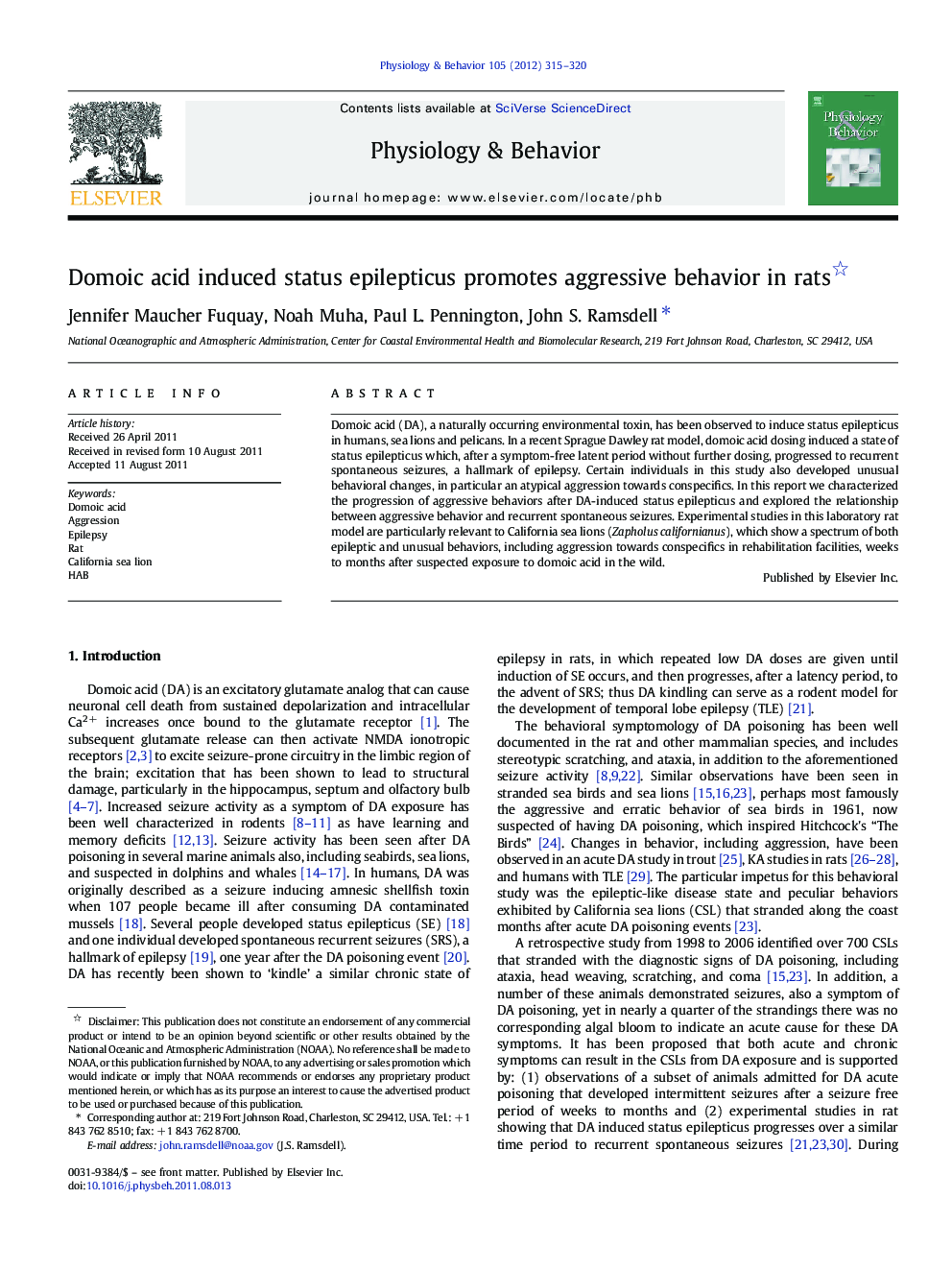| Article ID | Journal | Published Year | Pages | File Type |
|---|---|---|---|---|
| 5925538 | Physiology & Behavior | 2012 | 6 Pages |
Domoic acid (DA), a naturally occurring environmental toxin, has been observed to induce status epilepticus in humans, sea lions and pelicans. In a recent Sprague Dawley rat model, domoic acid dosing induced a state of status epilepticus which, after a symptom-free latent period without further dosing, progressed to recurrent spontaneous seizures, a hallmark of epilepsy. Certain individuals in this study also developed unusual behavioral changes, in particular an atypical aggression towards conspecifics. In this report we characterized the progression of aggressive behaviors after DA-induced status epilepticus and explored the relationship between aggressive behavior and recurrent spontaneous seizures. Experimental studies in this laboratory rat model are particularly relevant to California sea lions (Zapholus californianus), which show a spectrum of both epileptic and unusual behaviors, including aggression towards conspecifics in rehabilitation facilities, weeks to months after suspected exposure to domoic acid in the wild.
⺠Domoic acid induced epileptic disease in rats includes aggressive behavior. ⺠Aggression was significantly higher in epileptic rats compared to control rats. ⺠More aggressive behaviors follow a latent period, and declines within 12 weeks. ⺠Aggressive behavior and epilepsy follow domoic acid poisoning in California sea lions.
